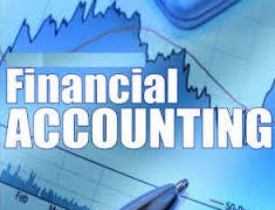Advanced Diploma In Finance And Accounts

Subjects
- Financial Accounting
- Management Accounting
- Financial Management
- Corporate Finance
- Taxation:
- Auditing and Assurance
Details
Course Name: Advanced Diploma in Finance and Accounts
Course Id: ADFA .
Eligibility: Completion of 10+2 (higher Secondary) or equivalent.
Objective: The Advanced Diploma in Finance and Accounts is a versatile qualification that provides a strong foundation for pursuing a career in the dynamic and evolving world of finance and accounting. Whether you aim to specialize in corporate finance, taxation, auditing, or financial analysis, this diploma equips you with the expertise to succeed in diverse professional roles.
Duration:one year
Syllabus
Financial Accounting: Basic Accounting Concepts and Principles: Accounting concepts: consistency, conservatism, accruals, and matching, Double-entry bookkeeping, Journals, ledgers, trial balances, and financial statements, Preparation of Financial Statements: Income statement, Balance sheet, Cash flow statement, Statement of changes in equity, Interpretation of Financial Statements: Ratio analysis (liquidity, solvency, profitability, and efficiency ratios), Cash flow analysis.
Management Accounting: Cost Accounting: Cost concepts and classification, Methods of costing (job order costing, process costing, activity-based costing), Cost-volume-profit analysis, Budgeting and Forecasting: Types of budgets (flexible, static, zero-based, incremental), Variance analysis, Forecasting techniques, Management Control and Performance Evaluation: Key performance indicators (KPIs), Benchmarking, Responsibility accounting.
Financial Management: Capital Budgeting and Investment Appraisal: Time value of money (NPV, IRR, Payback period), Risk and return analysis, Capital structure theories (modigliani-miller, pecking order theory), Working Capital Management: Cash management, Inventory management, Receivables and payables management, Financial Planning and Decision Making: Short-term and long-term financial planning, Sources of finance (equity, debt, hybrid instruments).
Corporate Finance: Corporate Financial Strategy: Mergers and acquisitions, Corporate governance, Dividend policy, Risk Management: Identifying financial risks, Hedging strategies (for interest rates, currency, and commodity risks), Insurance and derivatives.
Taxation: Principles of Taxation: Income tax: individual and corporate, Goods and Services Tax (GST), VAT and excise duty, Tax Planning and Compliance: Tax avoidance vs. tax evasion, International taxation and transfer pricing, Tax reporting and filing.
Auditing and Assurance: Introduction to Auditing: Role of auditors, Types of audits (internal, external, forensic), Audit planning and risk assessment, Audit Process and Techniques: Evidence gathering, Audit procedures and techniques, Fraud detection and prevention, Ethics and Professional Standards in Auditing: Ethical standards for accountants and auditors, Audit independence, Regulatory frameworks and international standards (IFAC, GAAP).
Job Opportunities after completion of Advanced Diploma in Finance and Accounts course:
After completing the Advanced Diploma in Finance and Accounts, graduates are well-prepared to enter various roles in finance, accounting, taxation, and business management. The program provides advanced knowledge in financial management, accounting principles, taxation laws, auditing, and corporate finance, making graduates highly desirable in the corporate world.
Career Options:
- Financial Analyst
- Analyze financial data to help organizations make informed investment decisions, forecasts, and budgeting plans. Work in industries such as banking, investment firms, and corporate finance.
- Accountant
- Prepare, maintain, and analyze financial records for companies or individuals. Responsibilities include managing financial transactions, accounts payable/receivable, and balance sheets.
- Chartered Accountant (CA)
- Specialize in auditing, taxation, and financial reporting for businesses, helping them comply with financial regulations. This role may require additional certification in some regions.
- Tax Consultant
- Provide expert advice on tax planning, compliance, and filings. Work for individuals, small businesses, or large corporations to minimize tax liabilities and ensure legal tax practices.
- Internal Auditor
- Evaluate and improve the effectiveness of risk management, internal controls, and governance processes within an organization.
- Financial Planner
- Help individuals manage their finances, focusing on long-term goals such as retirement planning, investments, insurance, and estate planning.
- Investment Analyst/Manager
- Research and analyze investment opportunities in stocks, bonds, mutual funds, and other securities. Manage client portfolios and develop strategies for wealth growth.
- Credit Analyst
- Evaluate the creditworthiness of individuals or organizations applying for loans or credit. This role involves assessing financial history, risk, and repayment ability.
- Accounts Manager
- Oversee an organization’s financial operations, including accounts payable, accounts receivable, payroll, and financial reporting, ensuring accuracy and compliance with laws and regulations.
- Finance Manager
- Manage a company’s financial health, including financial reporting, budgeting, forecasting, and capital management, contributing to strategic financial decisions.
- Business Analyst
- Bridge the gap between business and IT by analyzing data to help organizations make better business decisions. This can involve streamlining financial operations or advising on financial strategies.
- Corporate Treasurer
- Manage a company’s finances, including liquidity, investments, and risk management. Oversee capital raising and financial strategy to support company growth.
- Risk Manager
- Assess and manage risks to a company’s financial stability, advising on strategies to mitigate financial losses or exposure to market fluctuations.
- Compliance Officer
- Ensure that financial institutions or corporations comply with regulatory requirements, focusing on financial transactions, tax laws, and reporting standards.
- Financial Controller
- Oversee all accounting functions within an organization, ensuring that financial records are accurate, timely, and compliant with regulations.
Key Sectors:
- Banking and financial services
- Accounting firms
- Corporate finance departments
- Tax consultancy firms
- Insurance companies
- Investment and asset management firms
- Government and regulatory bodies
- Real estate and property management
- Non-profit organizations
- Educational institutions
